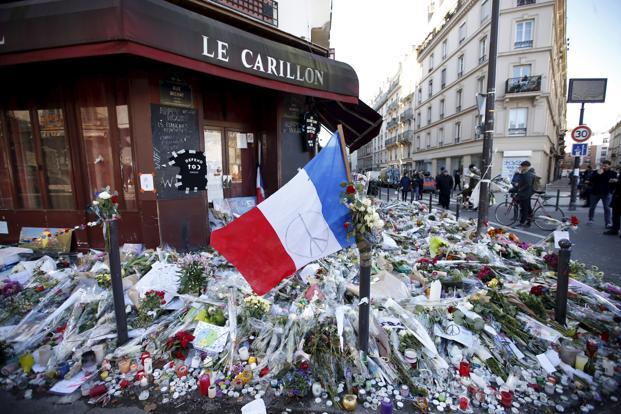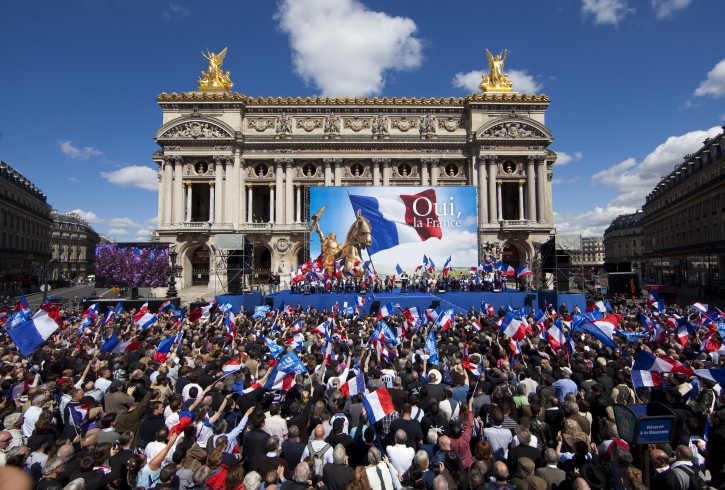By Melanie Kent
In May 2014, the #bringbackourgirls campaign brought global attention to Boko Haram’s capture of more than 275 Nigerian girls from a school in Chibok. But the international spotlight left the center of terrorist activity as the months dragged on and the obvious solutions failed. Funds, weapons, international pressure, government statements, even domestic lobbying—all the logical channels for getting things done—failed to make Boko Haram gag and spit up. According to the leader of the terrorist group, Abubakar Shekau, the girls are now converted to Islam and married off.
The reasons behind this tragic failure are not obvious to the West because they are embedded in context and history. Media reports and the general public often treat terrorism as a phenomenon rooted in a void and carried out by duplicate monsters. The host nation is either a victim or an accomplice—or absent from the picture. This one-dimensional construct of “the enemy” translates into simplistic understandings of groups involved in terrorism, resulting in simplistic solutions.
In the case of Boko Haram, the translation was literally botched.
“Western education is sin” is the parroted interpretation of the Hausa word “boko” and the Arabic word “haram.” This paraphrase seems to put the group in the same camp as every Middle Eastern jihadist group, except maybe less politically correct (why hate on education?). But a closer interpretation shows that the roots of the group are fundamentally different from terrorist organizations descended from Bin Laden. Paul Newman, professor emeritus of linguistics at Indiana University, explains that:
“Boko is an indigenous Hausa word originally connoting sham, fraud, deceit, or lack of authenticity. When the British colonial government imposed secular schools in northern Nigeria at the beginning of the 20th century, boko was applied in a pejorative sense to this new system.”
Nigeria’s efforts to combat Boko Haram are intricately linked to this history, but to understand this, first take a look at its current context.
Nigeria is one of the most corrupt nations in the world, ranked 136 out of 175 in 2014, according to Transparency International. Gallup asked Nigerians about this issue in 2013, and nine in ten said they viewed government corruption as widespread. To get an idea of the scope of this problem, consider the government budget: oil sales supply 70 percent of the total funds, an estimated 10 percent of which is stolen by government officials. In 2012, a parliamentary probe found that within one three-year period $6.8 billion petrodollars were rerouted to officials’ private accounts. Another investigation revealed a diversion of up to $20 billion over an 18-month period.
This is significant in the fight against Boko Haram, as defense funds are treated in a similar way. Although federal military spending has seen considerable increases to counter insurgency (from $625 million in 2010 to $6 billion in 2011, and at $6.25 billion for the past three years), the International Crisis Group reports allegations of extensive misappropriation of security and defense funds. These problems are magnified by the fact that the “security vote” line of the budget (intended for discretionary spending when the need for quick response to security threats arises) is not subject to oversight.
While many on the international stage are responding to the Nigerian government’s incompetence in funding the military with calls for direct monetary aid, arms, and training, Nigerians themselves are less eager to put their hope in the military. Large percentages of the population (80 percent of Christians and 68 percent of Muslims) said they trusted the military “only a little or not at all,” according to the Pew Research Institute. This is partially explained by Nigeria’s post-independence political history, which has featured a series of military coups—six in the forty years before civilian control was established in 1999 (check out this simplistic but helpful chronology). The military has historically been part and parcel of political strategies and manipulation. Because of this, according to Jakkie Cilliers of the Institute for Strategic Studies, if the army is “too well run and effective, there’s a danger it becomes a big problem at home.” Nigeria has witnessed this very reality in the military’s response to Boko Haram. As a striking example, Baga, the very town razed by the terrorist organization January 3rd-5th of this year was ransacked by the Nigerian military less than two years ago, resulting in as many as 200 civilian deaths.
The Nigerian army even had a hand in inciting the radicalization of Boko Haram in the first place. Boko Haram was a non-violent organization until 2009, when its expansion and critical stance towards the government caused clashes with police. The conflict quickly escalated; Nigerian troops killed hundreds and destroyed a mosque. Muhammad Yusuf, the organization’s leader, was captured, turned over to police, and executed without trial. In the past four years, the organization has morphed and split, and established links with foreign Islamist groups such as al-Qaeda in the Islamic Maghreb, al-Shabaab in Somalia, and Ansar Dine in Mali. Its leadership has grown more violent and radical and its aims have diversified.
Given that Nigeria’s efforts to stop Boko Haram’s violence have been either nonexistent or damaging, the best hope for those facing Boko Haram’s immediate threats of violence seems to be the current regional attempts at intervention. Ghana, Chad, and Niger face expansion of Boko Haram across Nigerian borders into their own territory and are currently considering how best to take action.
However, to deal with the threat Boko Haram poses in the long term, a military solution is utterly insufficient. Return again to that idea of the misinterpretation of “boko haram.” The words came out of a Muslim and colonial context. Founded in 2002, the Boko Haram was an Islamic sectarian movement which proclaimed a commitment to uprooting the corruption and injustice plaguing Nigeria. Blaming these problems on Western influences, their solution was to expand the area under jurisdiction of Sharia law. This Islamic law is regarded by many as a viable alternative to the ineptitudes of the legal system in the majority Christian south, and was instituted in 1999 as the main legal system in the nine northern Muslim-majority states of Nigeria. Sharia also partially applies in three Muslim-plurality states. It is these three states in the northeast which have endured the most violence by the organization in recent years. Borno, one of these states that is the modern descendent of the great Borno Empire, retained indigenous, pre-Islamic beliefs, while continuing to embrace Islam. This division and conflict with the more purist Islamic population of other parts of the north (and the extended Muslim world) fuels Boko Haram’s disputes in the region.
The legacy of inequality in Nigeria left by colonialism drives the organization on a more practical level. British and French colonization disrupted the trans-Saharan trade and required a focus on agricultural production, resulting in a dramatic decline for the north. The predominantly Christian south also received preferential treatment in development of infrastructure and educational opportunities under the British, further widening the development gap. These grievances provide a very real basis for Boko Haram’s support. When the corruption of the Nigerian government and violence of the military are also taken into account, it is no wonder that many were attracted to the idea of a more stable state: for northern Nigeria, Western education has been deceitful and unjust.
The government’s stance of declared war against Boko Haram has precluded successful dialogue and any hope of negotiations toward a settlement. Boko Haram has now mutated beyond what political solutions alone can address, but security in the long term demands that the Nigerian government confront the root causes of this conflict: social and economic neglect. Nigeria needs healing, not fixing, and this requires understanding the disease.

